What to Know Before Volunteering with Elephants
Interested in volunteering abroad with elephants? Before you book that trip abroad, read our helpful guide to understand why and how to ethically volunteer and care for elephants.
TLDR 👀
- Human-elephant conflict, unethical tourist attractions, and shady orphanages play major threats for elephants and are the top reasons volunteers are needed.
- Not every volunteer project working with elephants has a positive impact, so vetting organizations in advance is critical.
- There are a lot of creative initiatives that elephant conservation organizations are using to help end poaching, human-elephant conflicts, and preserve wild elephant populations in both Africa and Asia. From helping build natural elephant barriers to tracking elephant behavior, there’s a lot of work that volunteers can be a part of.
- Before you book your program, make sure to ask what the program does to assure the safety of the volunteers. Though cute, elephants are still wild animals and are not always predictable.
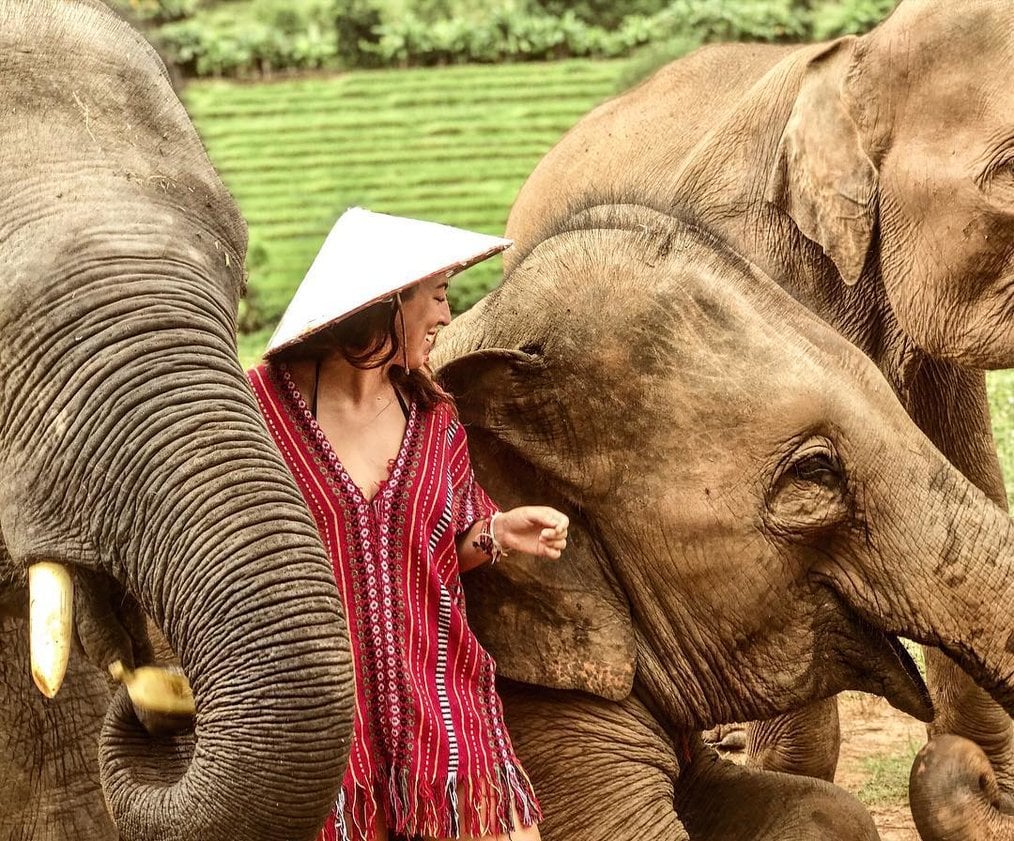
Jon and I sat, coffee cups in hand, in front of my computer on our porch in San Francisco, as we talked over Skype with our program coordinator, Megan, at Greenheart Travel. Though we were still a world away from our volunteer placement working with wild elephant conservation in Sri Lanka, it was at that moment the reality of what we had signed ourselves up began to sink in.
"You'll spend your mornings transecting," Megan started, "which means, you'll be inspecting elephant poop to see what they've eaten. In the afternoons, you'll be in this tree hut -- it's really pretty -- to look out for elephants and record notes on their behavior."
"Well, half of that sounds great," I jokingly said to Jon as we laughed about the idea of spending two weeks poking at elephant dung while working with wild elephants.
Volunteering with elephants obviously isn’t all leisurely walks through the jungle. When done right, it can have a huge impact on elephant and human communities in Africa and Asia. However, not every volunteer project working with elephants has a positive impact, and the work itself might not be a week's worth of splashing around with baby elephants in a river.
Let’s explore the ways volunteer projects help elephants and how to properly prepare yourself for volunteering with elephants abroad.
How do volunteer projects abroad help elephants? What’s the cause?
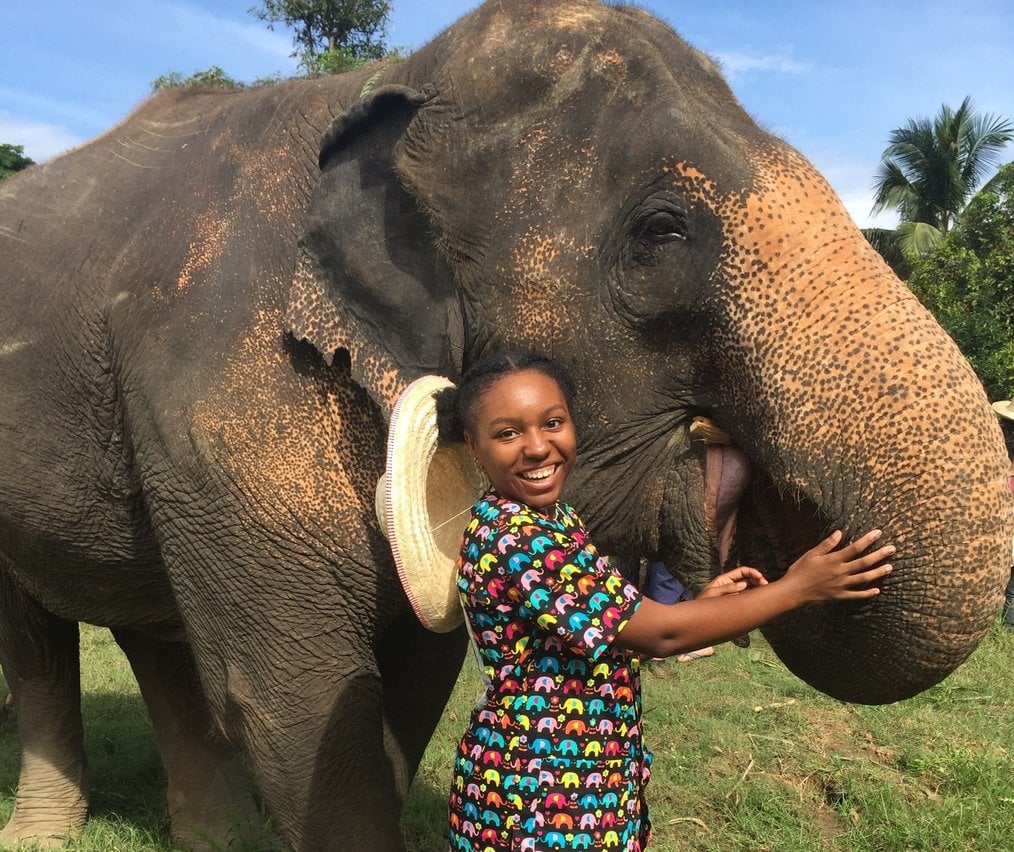
Before setting out to volunteer with elephants, you may assume that your volunteer role will mostly involve taking care of orphaned elephants whose parents had been killed by poachers. Or perhaps you thought that volunteering with elephants was limited to projects in elephant sanctuaries, rehabilitation centers, or orphanages.
There are many projects around the globe working to conserve these endangered species, and they need your assistance to make the world a better place for elephants! Sadly, not every volunteer project working with elephants has a positive impact, so vetting organizations in advance is critical.
Here are 3 reasons volunteer projects can help elephants:
1. The human-elephant conflict
Wondering what the human-elephant conflict is? Basically, humans move into elephant zones (often as a result of overpopulation or government relocation programs), and in these zones, elephants keep doing what they've always done -- hanging out in the area eating, sleeping, and well, living.
Unfortunately, when the new human establishments are in the way, elephants will sometimes destroy property, crops, and lives. As a result, the humans kill or injure elephants, diminishing natural populations and orphaning young elephants.
In Sri Lanka and other predominantly Buddhist areas, they don't necessarily want to kill the elephants, but they also don't have any other ways of keeping the elephants out of their fields and villages. They want to keep their families safe.
Conservation projects here seek to educate local populations, preserve habitats, and keep elephants away from villages as a way to solve this problem.
2. Elephants are being kept captive for tourists
Many tourists love elephants and often want to see them up close, ride them, and play with them. Sadly, this means there are many elephants that are held captive and forced to work as tourist attractions.
There are many unethical tourist traps that keep elephants unnecessarily in captivity and torture them in order to break them into being “safe” near humans. Training elephants to have human interaction involves abusive techniques which you can learn about on World Animal Protection.
Any conscious traveler knows to never ride an elephant, but some unsuspecting tourists still get lured into phony elephant orphanages where elephants are kept in chains, bull-hooks are used, and elephants are forced to bathe at set times.
3. Some elephant orphanages are tourist scams
Some elephant orphanages ultimately do more harm than good for elephants. The Pinnawala Elephant Orphanage in Sri Lanka has been known to follow questionable animal welfare standards. Apparently, orphaned elephants were taken in, but never re-released into the wild.
Unethical elephant sanctuaries like that one, continue to exist to bring in money from tourists who simply want to just ride, wash, or play with elephants.
What do you do when you volunteer with elephants?
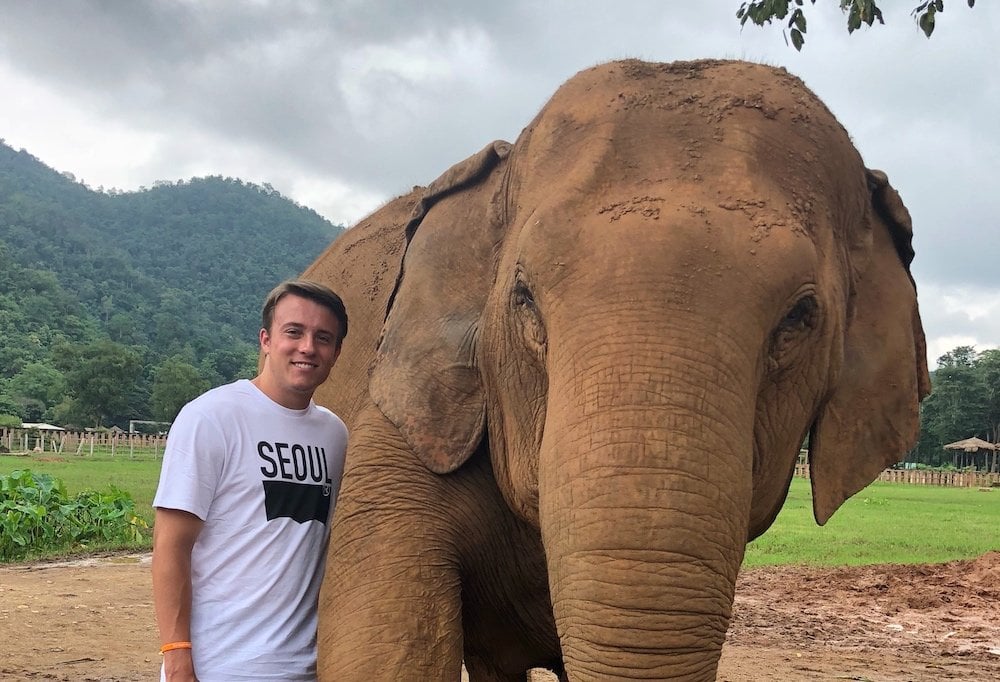
There are a lot of creative initiatives that elephant conservation organizations are using to help end poaching, human-elephant conflicts, and preserve wild elephant populations in both Africa and Asia. If you volunteer with one of these projects, you'll likely work in one or more of these areas.
Work in education
Working in education as an elephant conservation volunteer usually means teaching local populations about elephants, the importance of wildlife conservation, and getting them involved in initiatives to preserve them. Getting the community on board is always an essential step in development projects.
Help create natural elephant fences
One of the most basic things conservationists are trying to achieve with the human-elephant conflict is simply keeping elephants out of populated areas -- for everyone's protection, including the elephants. They do this by creating natural barriers, like fences from citrus plants or bees which has been noted to be successful in Africa and not-so-natural barriers such as mildly electric fences that surround Udawalawe National Park in Sri Lanka.
Preserve elephant habitats
Elephant habitat preservation covers a wide range of projects meant to protect both elephants and humans. Some tasks could be marking areas as reserves to prevent humans from building homes, tracking elephant behavior and their routes to predict their next move and to keep humans out of those areas, and petitioning for government support.
Create alternative means of income generation for locals
In areas where elephant poaching is a problem, helping local populations find alternative ways of earning an income, can help prevent their need to poach. An example of this is training locals to become tour guides or jeep drivers for elephant safaris in strictly regulated National Parks.
What are some common daily volunteer activities?
Most activities for short-term volunteers revolve around data collection, observing elephant habitats, and recording their behavior. Regardless, the day to day of volunteering with elephants, particularly wild ones, might involve:
- Assisting with field research
- Marketing and fundraising
- Observation and making notes of elephant behavior (i.e. counting elephants, making notes of days and times they appear at certain sites, etc.)
- Building and repairing fences
- Community development projects
- Transecting (aka helping researchers with elephant poo)
What should I look for when choosing an elephant conservation program?
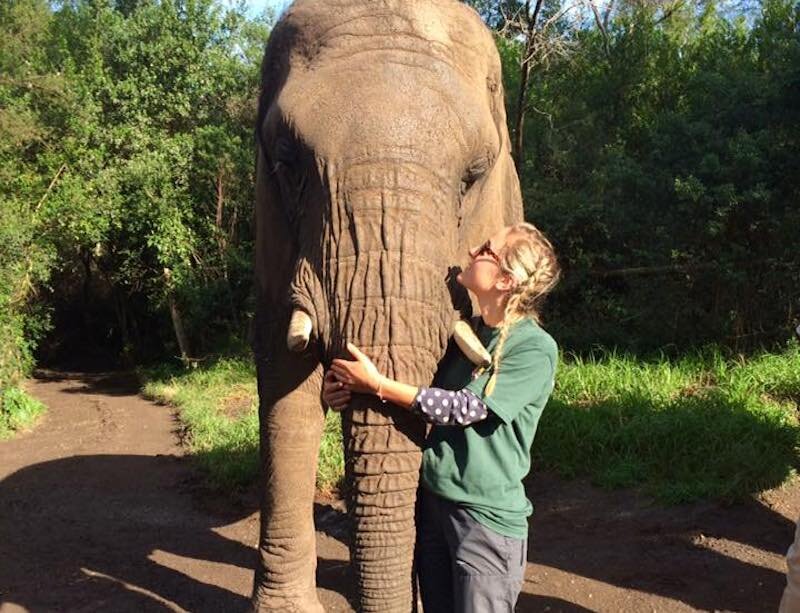
All too often, our concerns of cost and convenience come before responsible actions when we're figuring out which organization to volunteer with. Yes, you'll want to choose a program you can actually afford and show up for, but that should be secondary to considerations like reputation, the involvement of the host community, sustainability, and safety.
Also, keep in mind that some program providers are essentially just matching you with a local host organization. Therefore, it's important to read reviews of the program provider and organization on Go Overseas or other reputable consumer feedback forums. You want to make sure that both are reputable and have the buy-in of the local host community.
Ideally, the host organization will regularly involve local members and have a plan to sustainably run their project without the support of volunteers in the future. For grassroots organizations, this requires funding which is why it may be a bit costly to volunteer with elephants.
Be sure to ask what the program does to assure the safety of the volunteers. Though cute, elephants are still wild animals and are not always predictable. You'll want to be trained and know that you're with staff who are trained on safety precautions.
Related: 10 Things You Should Look for in a Volunteer Program
Where can you volunteer with elephants?
If you want to work with elephants, you'll need to go to either Africa and Asia. Within the two, some popular destinations include the ones listed below. If you're interested in looking at programs or reading more about volunteering in that country, follow the link to our program listings pages. We also have an article that breaks down some of the best countries for volunteering with elephants and what makes each one special.
| Asia | Africa |
|---|---|
| Thailand | Tanzania |
| Sri Lanka | Kenya |
| India | Botswana |
| Indonesia (mainly Borneo) | South Africa |
| Vietnam | Namibia |
| Laos | Zambia |
Within those destinations, there are a ton of organizations both making a positive impact and simply claiming to make a positive impact on elephant conservation. A few vetted organizations that we've heard of include SLWCS (the local organization Greenheart Travel works with) and African Impact.
Helpful resources for volunteering with elephants
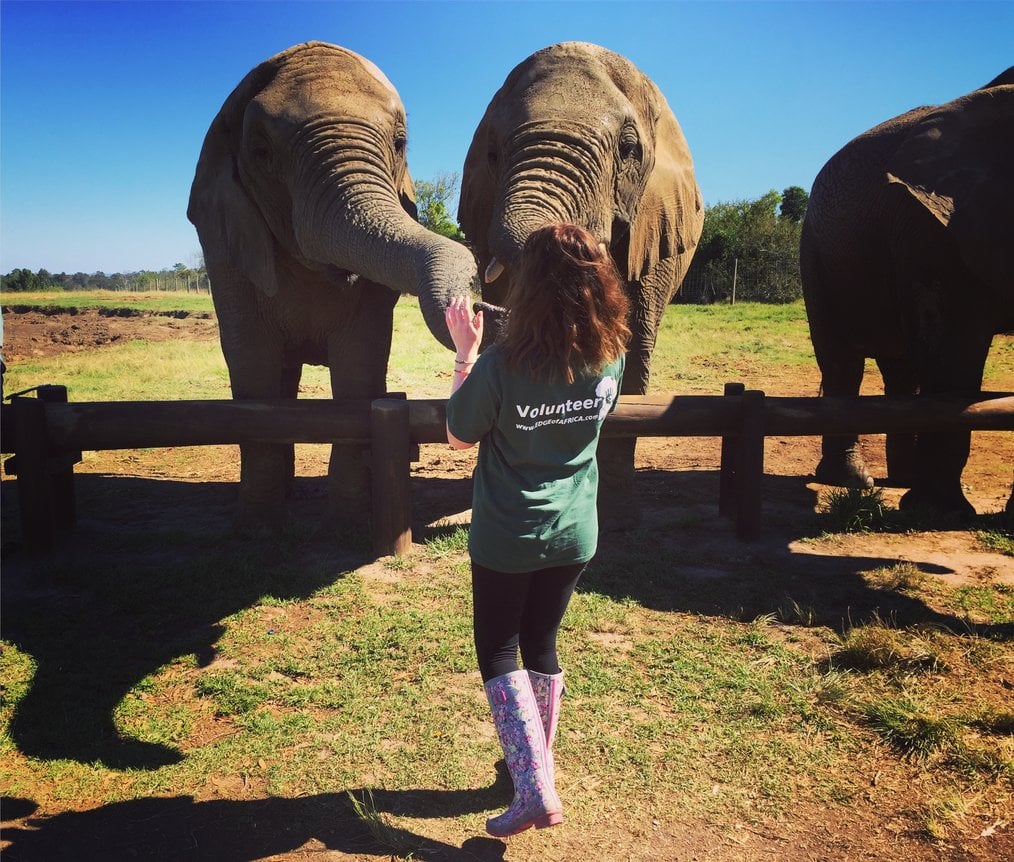
A few organizations with resources on elephant conservation and volunteering with elephants are listed here:
- The African Wildlife Fund has helpful data on elephant conservation in Africa.
- The Humane Society's explanation on why you shouldn't ride elephants.
- Find reviews of volunteer programs with wildlife conservation.
- Educate yourself about the issues elephants face.
- Learn how to identify an ethical elephant sanctuary.
Volunteering with elephants is an honorable way to spend your time, as you'll be a part of the effort to protect the largest land mammal on earth. Just make sure to select a reputable project at a conservatory or sanctuary in Asia or Africa, that has needs that match your skill set. Then you'll be on your way towards removing elephants from the highly endangered species list!



